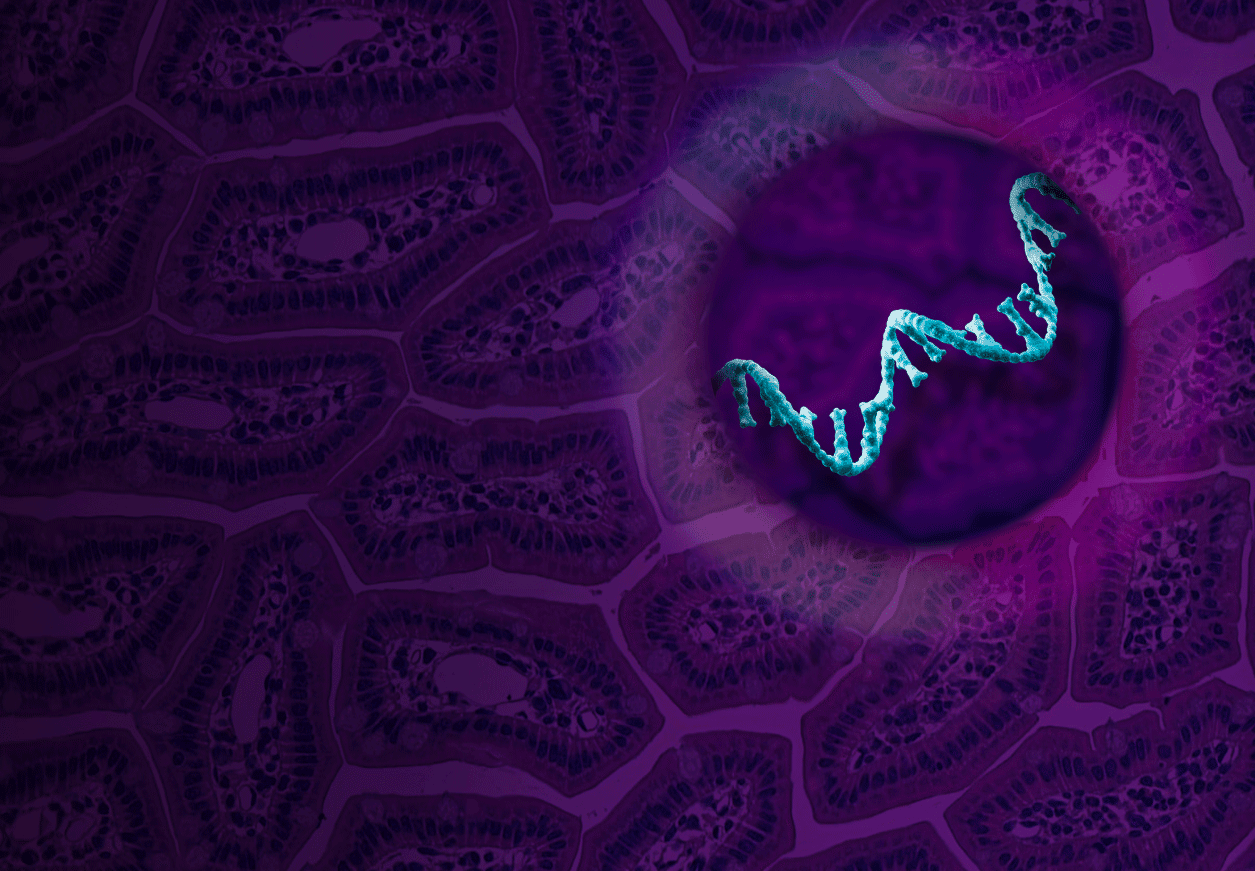Sensitive applications require precision tools
Clinically relevant and other highly sensitive sequencing applications require solutions that maximize the information output from samples where template mass and quality are limited. Watchmaker leverages novel enzyme engineering with multidimensional reaction optimization to develop DNA and RNA NGS library preparation solutions that better maintain data integrity – minimizing bias and improving sequence accuracy to ultimately increase sensitivity.
The resulting solutions deliver meaningful data quality improvements compared to existing commercially available products. This is especially evident when working with challenging cfDNA from liquid biopsies, FFPE, and other low-input or degraded samples. These advancements enable researchers to address more clinically relevant samples using simple, fast, and easily automated workflows.
Watch now: Non-invasive Prenatal Testing: Embracing Low Input Methodologies
As presented at ESHG 2024
Highlights
- Increase variant calling sensitivity from liquid biopsy samples
- Access more information from FFPE samples
- Accurate PCR-free whole genome sequencing (WGS) without sonication
- Enable rare mutation detection with ultra-high-fidelity library amplification
- For assay developers – make realizing your next product easier

Sensitive solutions for clinically relevant applications
Increase variant calling sensitivity from liquid biopsy samples
- Liquid biopsy applications require the detection of low-abundance variants (typically <1%) from very limited inputs.
- The Watchmaker DNA Library Prep Kit increases the conversion of cell-free DNA (cfDNA) template into sequenceable library.
- This results in higher library complexity from limited inputs, which translates to deeper coverage and highly sensitive and reliable variant calling from cfDNA samples.
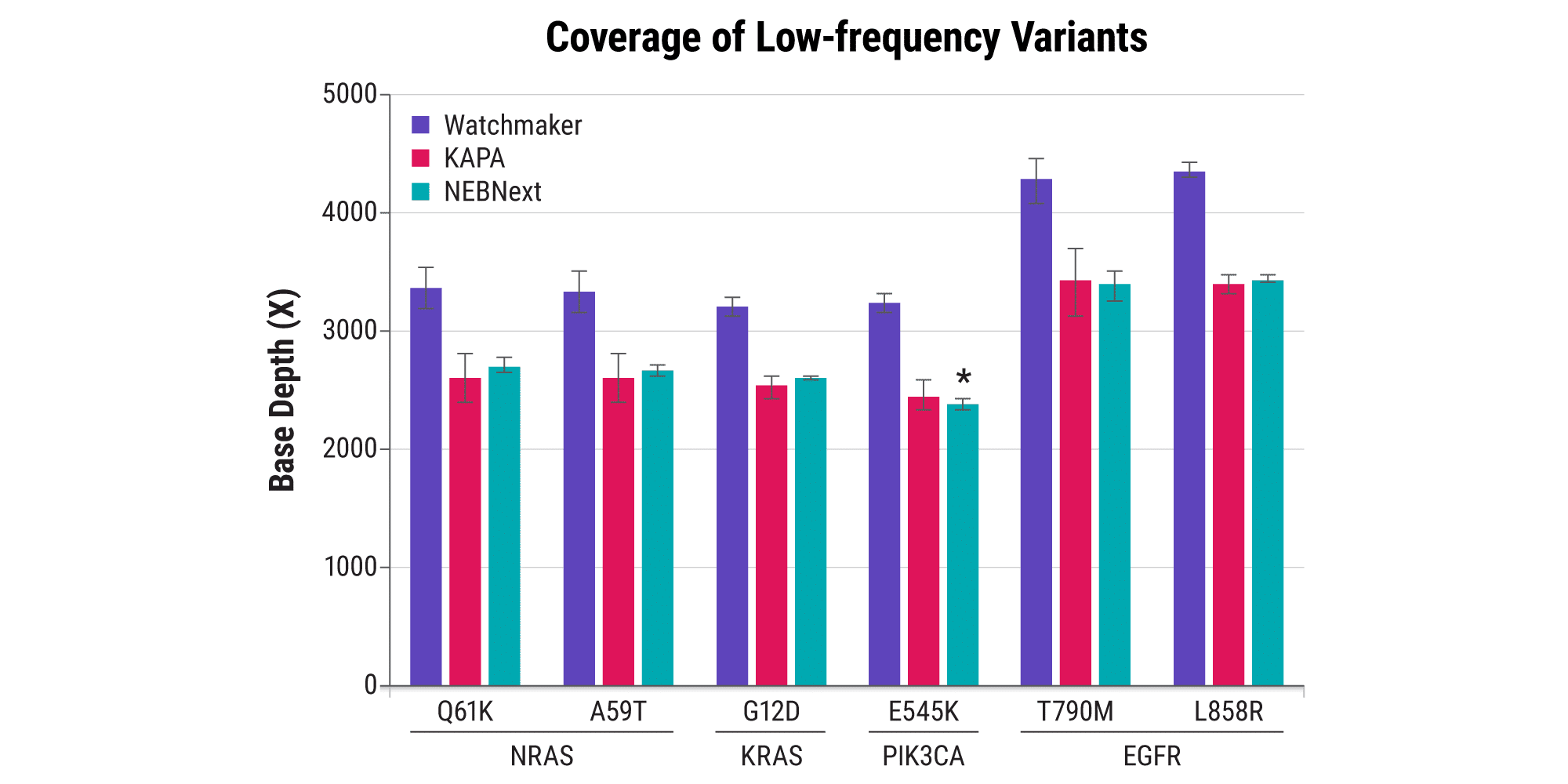

Access more information from FFPE samples
- Processing FFPE samples is inherently challenging due to the template damage incurred during fixation and the presence of residual cross-links.
- The Watchmaker RNA Library Prep Kit with Polaris Depletion was designed for FFPE samples and includes a novel FFPE treatment step and a reverse transcriptase specifically engineered for RNA-seq applications.
- The result is a solution that delivers excellent sensitivity, enabling researchers to address a broader range of clinically relevant samples effectively.
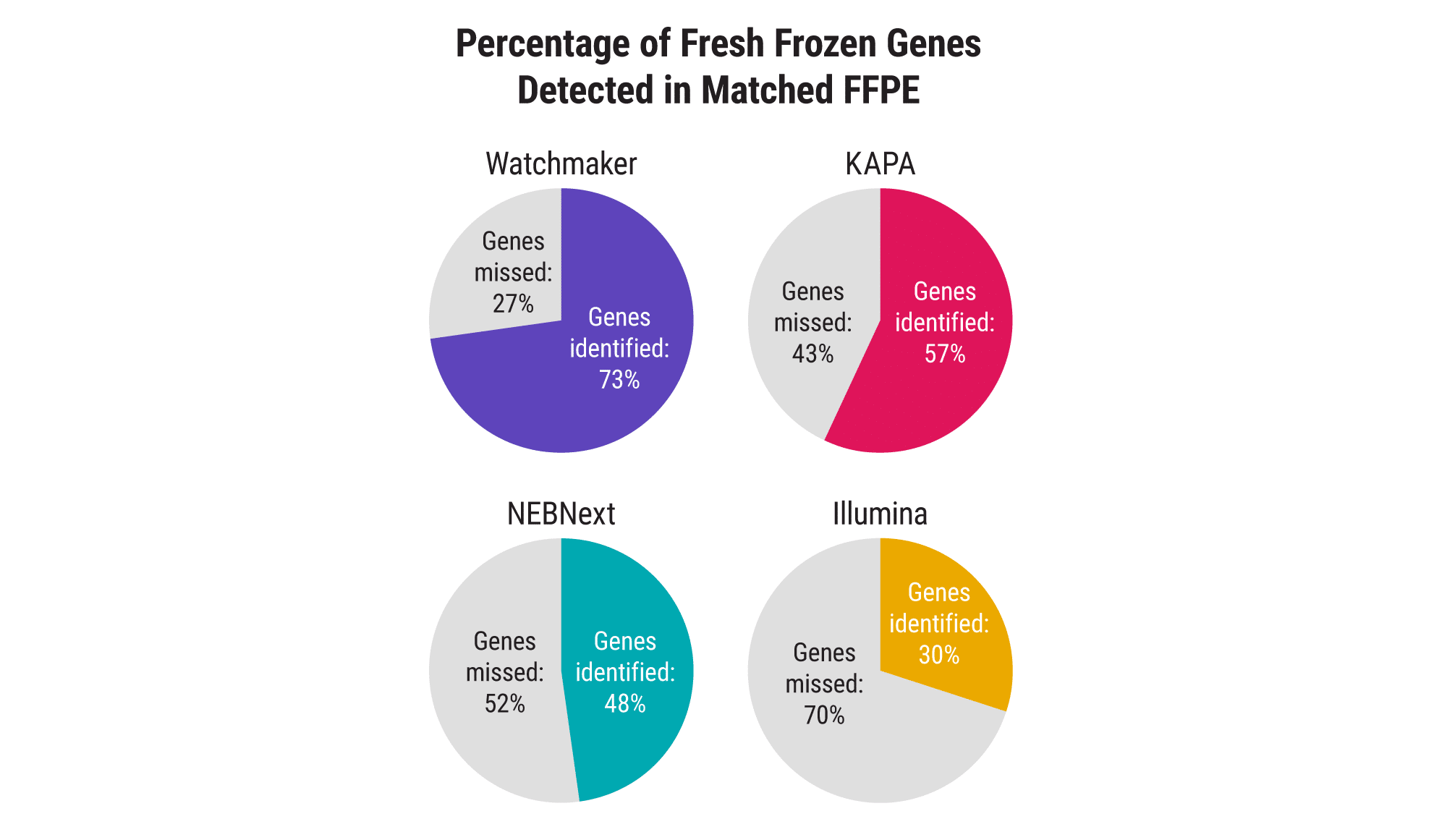
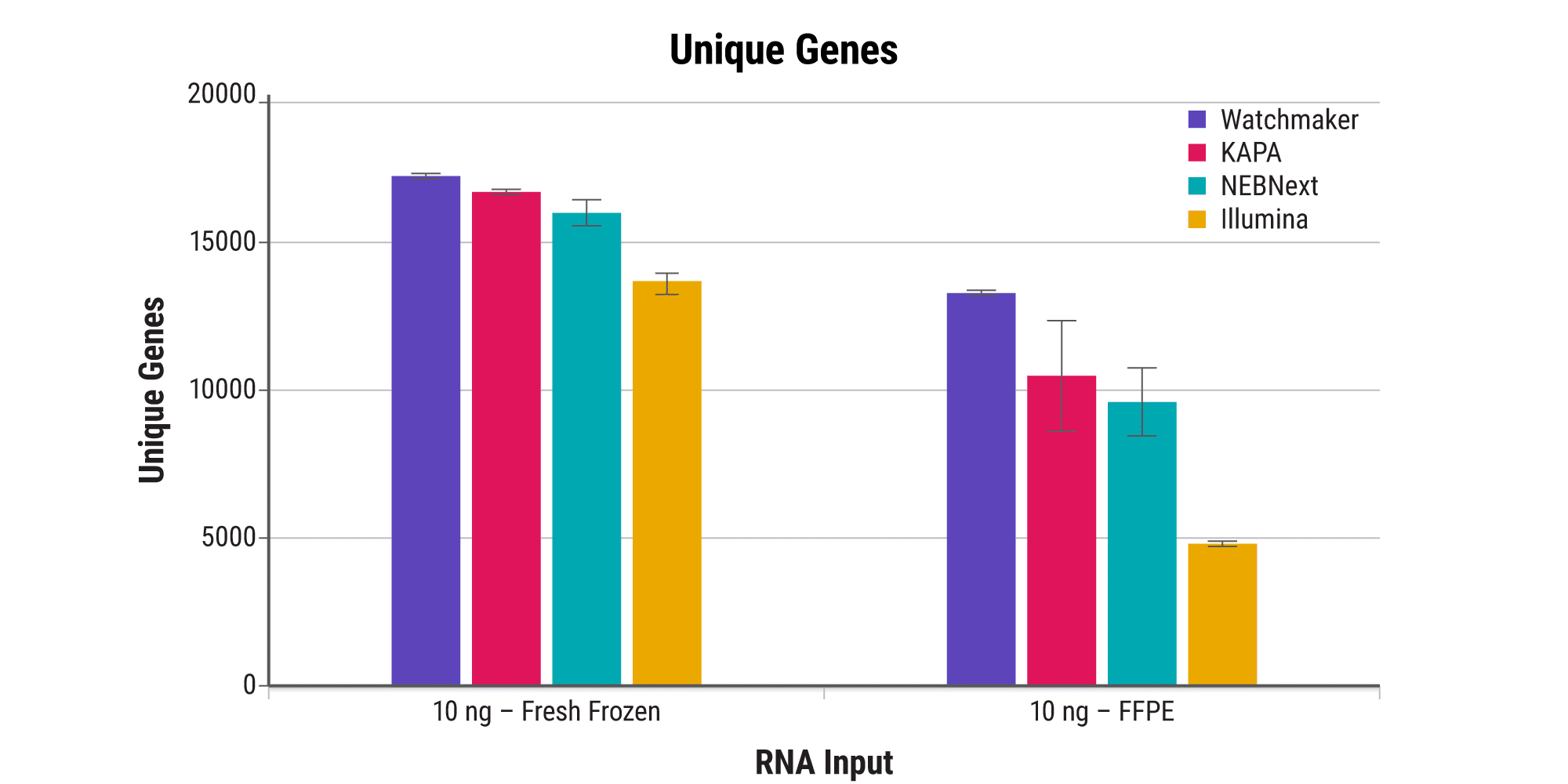


Accurate PCR-free whole genome sequencing (WGS) without sonication
- PCR-free WGS provides comprehensive genomic information with minimal bias, making it valuable for research, diagnostics, and precision medicine.
- The Watchmaker DNA Library Prep Kit with Fragmentation delivers high library yields without the need for amplification, increased coverage across challenging promoter regions, robust variant calling, and excellent sequence coverage.
- Many of these benefits surpass the ‘gold-standard’ method of mechanical fragmentation.
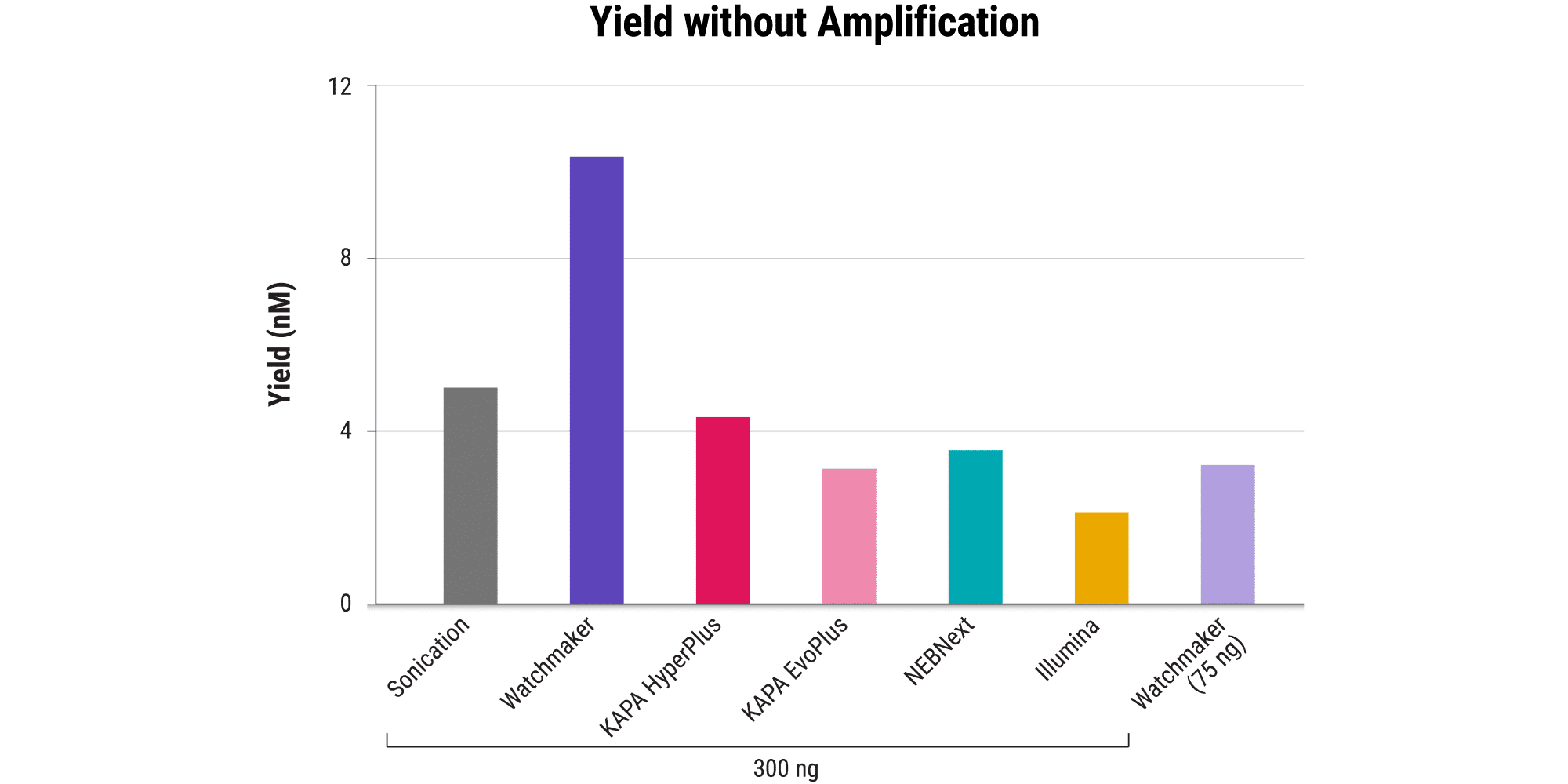
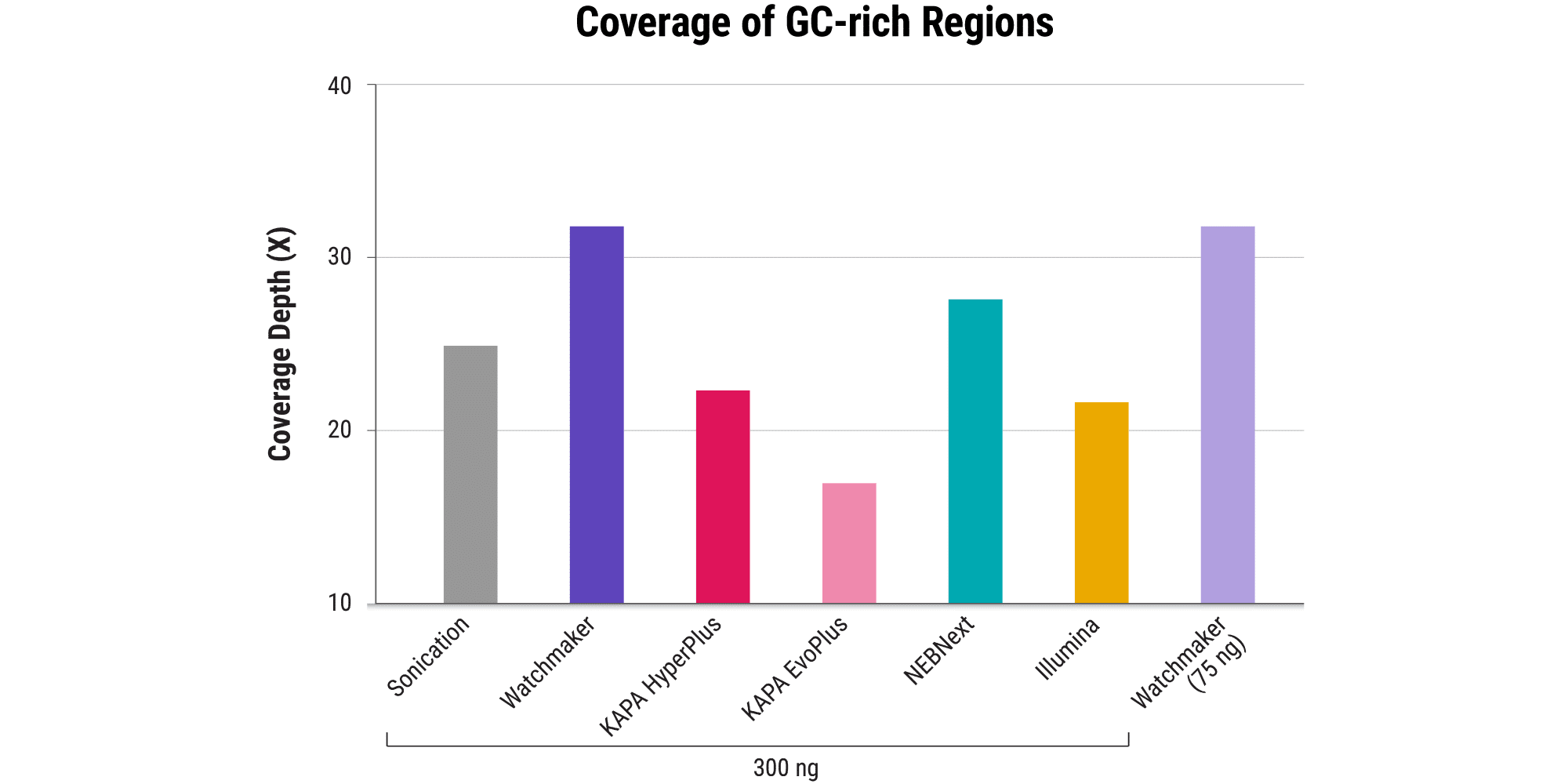
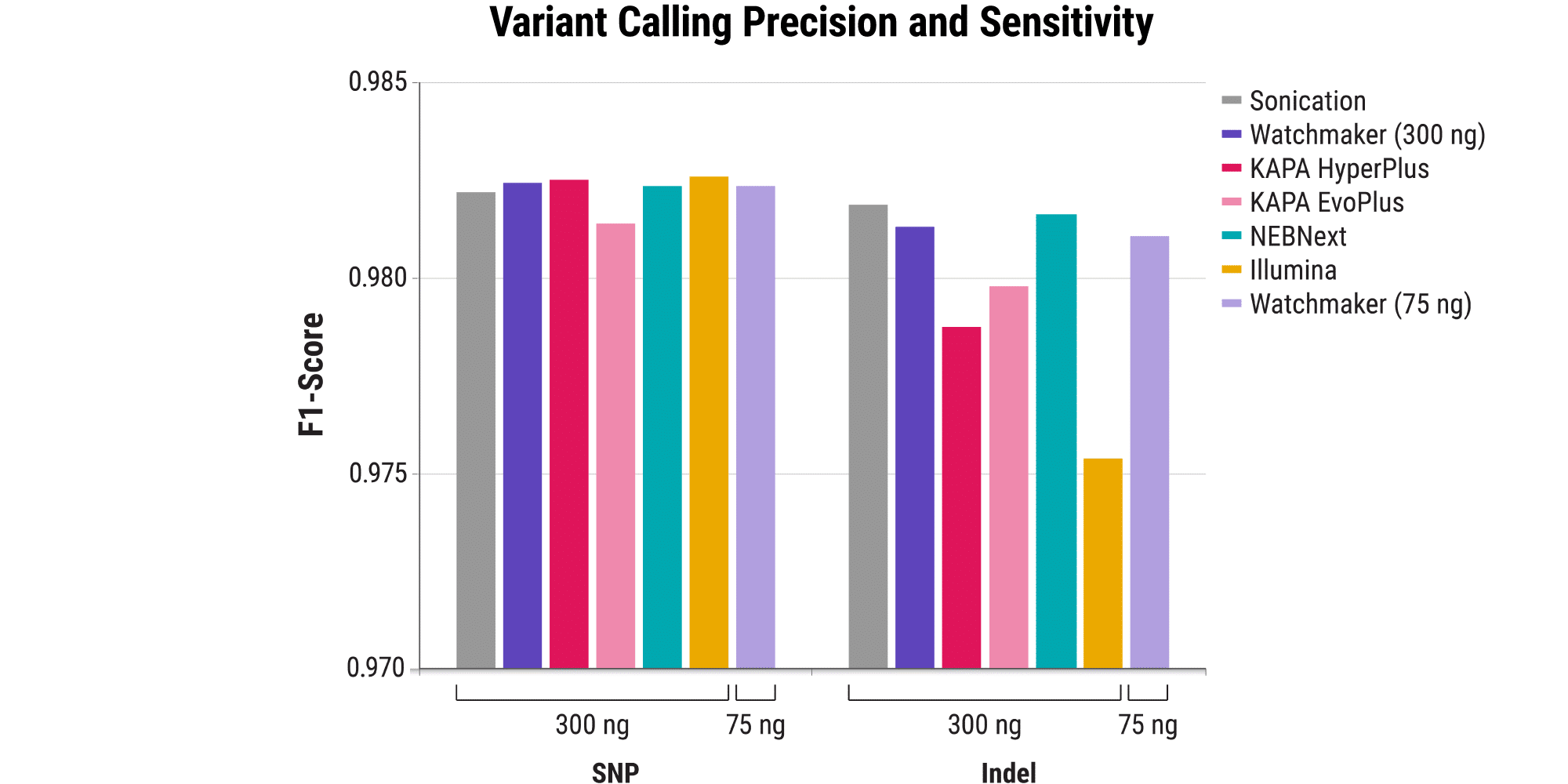



Enable rare mutation detection with ultra-high-fidelity library amplification
- Sensitive variant detection requires the use of a library amplification polymerase that minimizes PCR errors to reduce false calls.
- Equinox® is a proprietary proofreading polymerase, capable of a 40% reduction in overall polymerase error rate in comparison to KAPA HiFi HotStart ReadyMix.
- The reduction in C>T substitutions is particularly notable, as this mutation is one of the most common mutation types in cancers.
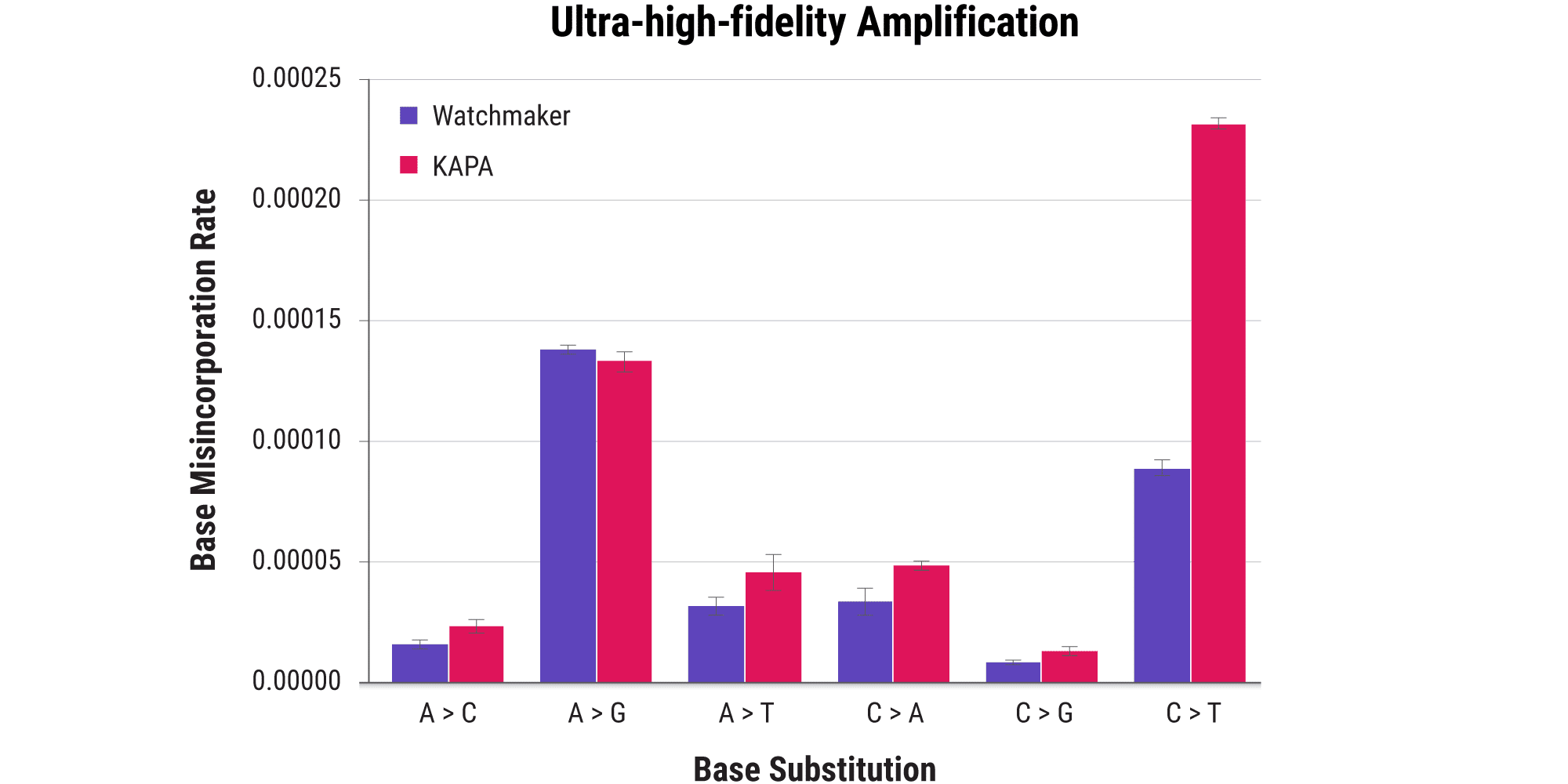

For assay developers – make realizing your next product easier
- Navigate the complexities of productization with an experienced team who’s as committed to your success as you are
- All aspects of our customization process are designed to serve you with speed, agility, and above all else, a commitment to quality
- Tailored fill volumes, labeling (including white and private label), and packaging designed to your specifications
- All products are manufactured within an ISO 13485:2016-certified QMS (download our certificate)
Discover more with Watchmaker
Equinox Library Amplification Kits
An ultra-high-fidelity DNA polymerase in an optimized hot start master mix format, specifically optimized for high-efficiency, low-bias NGS library amplification
Watchmaker DNA Library Prep Solutions
Rapid workflows to address all sample types and yield high conversion rates, reduced bias and artifacts, and reproducible results
RNA Library Prep Solutions
Highly sensitive, scalable, and robust chemistry with respect to performance with challenging clinically relevant sample types, such as FFPE and low inputs



